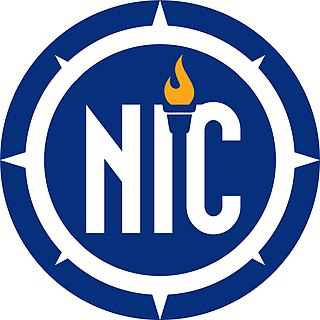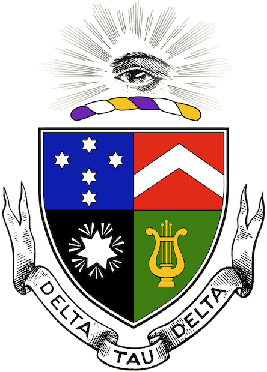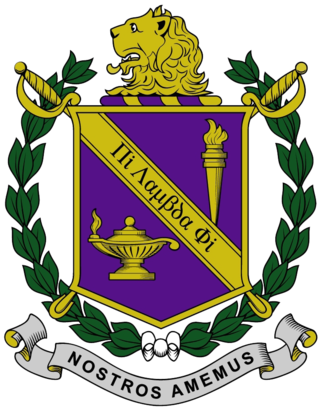
Phi Kappa Tau (ΦΚΤ), commonly known as Phi Tau, is a collegiate fraternity located in the United States. The fraternity was founded in 1906. As of May 2024, the fraternity has 161 chartered chapters, 83 active chapters, 7 associate chapters, and about 3,900 collegiate members. SeriousFun Children's Network, founded by Beta chapter alumnus Paul Newman, is Phi Kappa Tau's National Philanthropy. According to its Constitution, Phi Kappa Tau is one of the few social fraternities that accepts both graduate students and undergraduates.

The North American Interfraternity Conference is an association of intercollegiate men's social fraternities that was formally organized in 1910. However, it began at a meeting at the University Club of New York on November 27, 1909. The power of the organization rests in a House of Delegates in which each member fraternity is represented by a single delegate. However, the group's executive and administrative powers are vested in an elected board of directors consisting of nine volunteers from various NIC fraternities. Headquartered in Indianapolis, Indiana, the NIC has a small professional staff.

Delta Tau Delta (ΔΤΔ) is a United States–based international Greek letter college fraternity. Delta Tau Delta was founded at Bethany College, Bethany, Virginia, in 1858. The fraternity currently has around 130 collegiate chapters and colonies nationwide, with an estimated 10,000 undergraduate members and over 170,000-lifetime members. Delta Tau Delta is informally referred to as "DTD" or "Delts."

Pi Lambda Phi (ΠΛΦ), commonly known as Pi Lam, is a social fraternity with 145 chapters. The fraternity was founded in 1895 at Yale University in New Haven, Connecticut. Pi Lambda Phi is headlined by prestigious chapters at Temple University, the Massachusetts Institute of Technology, and the University of Virginia. Pi Lambda Phi is continuously expanding to schools across the country, such as Ohio State University, University of Cincinnati, Pennsylvania State University, Florida State University and East Carolina University. Recent planned expansions include West Virginia University and the University of Pennsylvania.

Phi Mu (ΦΜ) is the second oldest female fraternal organization established in the United States.

Kappa Kappa Gamma (ΚΚΓ), also known simply as Kappa or KKG, is a collegiate sorority founded at Monmouth College in Monmouth, Illinois, United States.
Service fraternity or service sorority may refer to any fraternal public service organization, whether college or community-based. However, in Canada and the United States, the term "fraternity" is typically used to refer to fraternal student societies.
Hazing in Greek letter organizations is defined as any act or set of acts that constitutes hazing and occurs in connection to a fraternity or sorority.
The expansion of Greek letter organizations into Canada was an important stage of the North American fraternity movement, beginning in 1879 with the establishment of a chapter of Zeta Psi at the University of Toronto. In 1883, the same fraternity established a chapter at McGill University. Other early foundations were Kappa Alpha Society at Toronto in 1892 and at McGill in 1899, and Alpha Delta Phi at Toronto in 1893 and at McGill in 1897. The first sorority, Kappa Alpha Theta, was established in Toronto in 1887. In 1902, the first international chapter of Phi Delta Theta was established at McGill University as the Quebec Alpha.

Fraternities and sororities at the University of Virginia include the collegiate organizations on the grounds of the University of Virginia in Charlottesville, Virginia. First founded in the 1850s with the establishment of several fraternities, the system has since expanded to include sororities, professional organizations, service fraternities, honor fraternities, and cultural organizations. Fraternities and sororities have been significant to the history of the University of Virginia, including the founding of two national fraternities Kappa Sigma (ΚΣ) and Pi Kappa Alpha (ΠΚΑ).
In North America, fraternities and sororities are social clubs at colleges and universities. They are sometimes collectively referred to as Greek life or Greek-letter organizations, as well as collegiate fraternities or collegiate sororities to differentiate them from traditional not (exclusively) university-based fraternal organizations and fraternal orders that have historically acted as friendly societies or benefit societies to certain groups unlike the ones mentioned in this article.
Pi Gamma Omicron (ΠΓΟ) was one of the first documented black collegiate fraternities which was founded in 1905.

Epsilon Nu Tau (ΕΝΤ) is a professional co-educational college fraternity for students interested in entrepreneurship. It was established at the University of Dayton in 2008 and has expanded to 21 universities in the United States.







